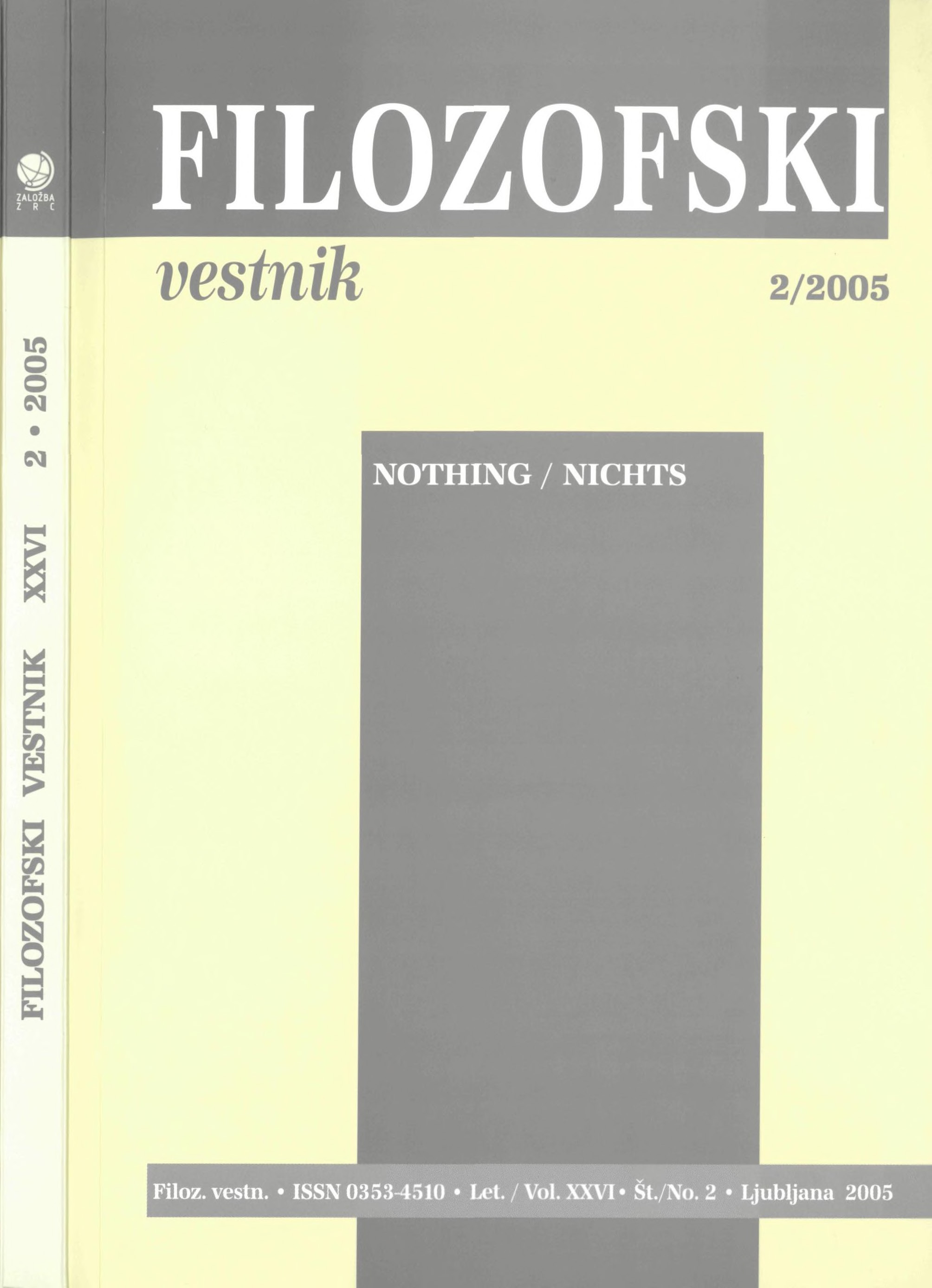Nothing Has Changed
Povzetek
The paper pursues the thread of nothing through the work of Samuel Beckett. Beckett started off, in one of his first texts, "Whoroscope", by taking a shot at Descartes and his cogito, but one could read Beckett’s subsequent work as his own elaboration of cogito: the gradual total reduction of all redundancy, the reduction of language and the reduction of the body, his "heroes" becoming reduced to the pure point of enunciation, constantly on the verge of disappearance, but nevertheless persisting. The nothingness towards which this process seemingly drives finally emerges as a loop of the "unnullable least". Hence the double meaning of the title: in Beckett’s universe nothing ever changes, but at the same time it appears that nothing has changed in the process of reduction, so that his work can be read as the strongest antidote to nihilism.Prenosi
Podatki o prenosih še niso na voljo.
Prenosi
Objavljeno
2005-01-01
Kako citirati
Dolar, M. (2005). Nothing Has Changed. Filozofski Vestnik, 26(2). Pridobljeno od https://ojs.zrc-sazu.si/filozofski-vestnik/article/view/3150
Številka
Rubrike
The Simple Art of Nothing
Licenca
Avtorji jamčijo, da je delo njihova avtorska stvaritev, da v njem niso kršene avtorske pravice tretjih oseb ali kake druge pravice. V primeru zahtevkov tretjih oseb se avtorji zavezujejo, da bodo varovali interese založnika ter da bodo povrnili morebitno škodo.
Podrobneje v rubriki: Prispevki





